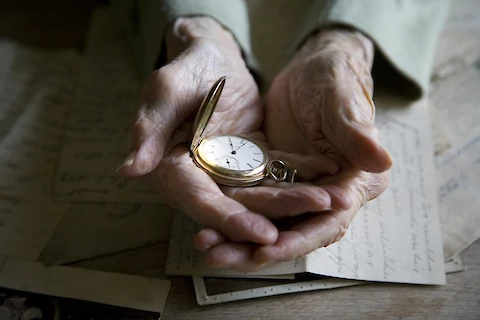
Living with Alzheimer's disease can be incredibly stressful, both for patients and for caregivers. Often, patients with Alzheimer's will grow confused about the date or time, especially around time changes, which can prove disorienting at the best of times. Should you correct seniors with Alzheimer's about the time and date? It may depend on the degree of Alzheimer's, the individual, and the situation.
Overview of Alzheimer's Disease
Alzheimer's disease is a progressive disorder in which nerve cells die off and impair the affected individual's speech, thought process, functioning short-term memory, and ability to reason. This ultimately leads to a decline in both mental capacity and quality of life as time passes, including an inability to remember specific details such as dates, times, or places.
How Alzheimer's Can Impact the Ability to Remember the Date and Time
Alzheimer's disease can cause confusion and forgetfulness, which can prevent a person from accurately recalling what day of the week or month it is (or even season) as well as times such as when to take medication, keep appointments, or attend events. The arrival of Daylight Savings Time can further interfere with some patients' ability to orient themselves in time.
Why You Might Correct a Senior with Alzheimer's About the Date and Time
In some cases, it may be beneficial to correct a senior with Alzheimer's about dates and times. Doing so can help ensure their safety when taking medication or attending doctor's appointments. Such reminders can also provide them with better quality of life if they have trouble recalling events or even what season it is.
Additionally, correcting a patient on timeframes allows them better capabilities for managing things like appointments and attending social engagements. Early in the Alzheimer's decline, caregivers may choose to correct seniors to help reorient them and maintain their overall quality of life.
Why You Might Not Want to Correct a Senior with Alzheimer's About the Date or Time
At a certain point, correcting seniors with Alzheimer's about the date and time may do more harm than good. Constantly being told what day or time it is can lead to feelings of agitation and loss of independence in the patient. Additionally, correcting them could potentially confuse them even more due to their already impaired cognitive abilities, leaving them feeling disoriented and frustrated, which can have a detrimental effect on their overall well-being. Carefully consider your loved one's cognitive level and how much agitation it will likely cause before delivering a correction.
Help Is Available for Seniors with Alzheimer's
Often, caregivers and loved ones of seniors with Alzheimer's disease want to help their loved ones stay at home for as long as possible. However, seniors with Alzheimer's may need additional care at home to make that possible. At Senior Helpers Honolulu-Kahala-Kailua, we provide in-home care services for seniors in Kailua, Waimanalo, Waikiki, Kahala, Aina Haina, Manoa, Hawaii Kai, McCully-Moiliili, and MCBH Kaneohe Bay. Contact us today to learn more about our home care options and the care we can provide for seniors with Alzheimer's.